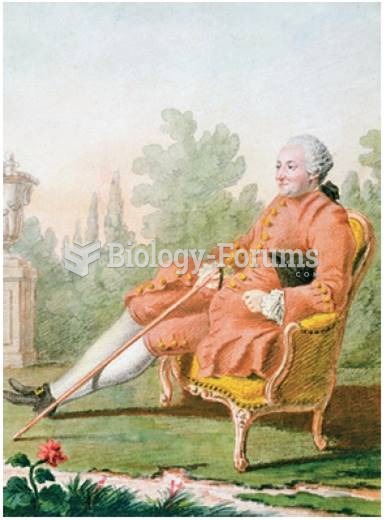|
|
|
More than nineteen million Americans carry the factor V gene that causes blood clots, pulmonary embolism, and heart disease.
Fatal fungal infections may be able to resist newer antifungal drugs. Globally, fungal infections are often fatal due to the lack of access to multiple antifungals, which may be required to be utilized in combination. Single antifungals may not be enough to stop a fungal infection from causing the death of a patient.
Blastomycosis is often misdiagnosed, resulting in tragic outcomes. It is caused by a fungus living in moist soil, in wooded areas of the United States and Canada. If inhaled, the fungus can cause mild breathing problems that may worsen and cause serious illness and even death.
The modern decimal position system was the invention of the Hindus (around 800 AD), involving the placing of numerals to indicate their value (units, tens, hundreds, and so on).
The FDA recognizes 118 routes of administration.
 James Madison was a key figure at the Constitutional Convention of 1787 in Philadelphia. He not only
James Madison was a key figure at the Constitutional Convention of 1787 in Philadelphia. He not only
 “To confess my weakness,” Hamilton wrote when he was only fourteen, “my ambition is prevalent.” This
“To confess my weakness,” Hamilton wrote when he was only fourteen, “my ambition is prevalent.” This
 These illustrations show Ellen Craft, a slave with and without a disguise. She dressed “as a disting
These illustrations show Ellen Craft, a slave with and without a disguise. She dressed “as a disting
 These illustrations show Ellen Craft, a slave with and without a disguise. She dressed “as a disting
These illustrations show Ellen Craft, a slave with and without a disguise. She dressed “as a disting



